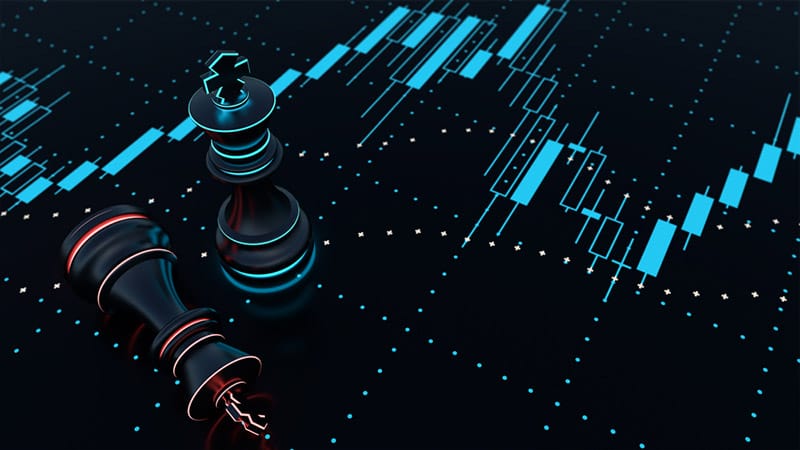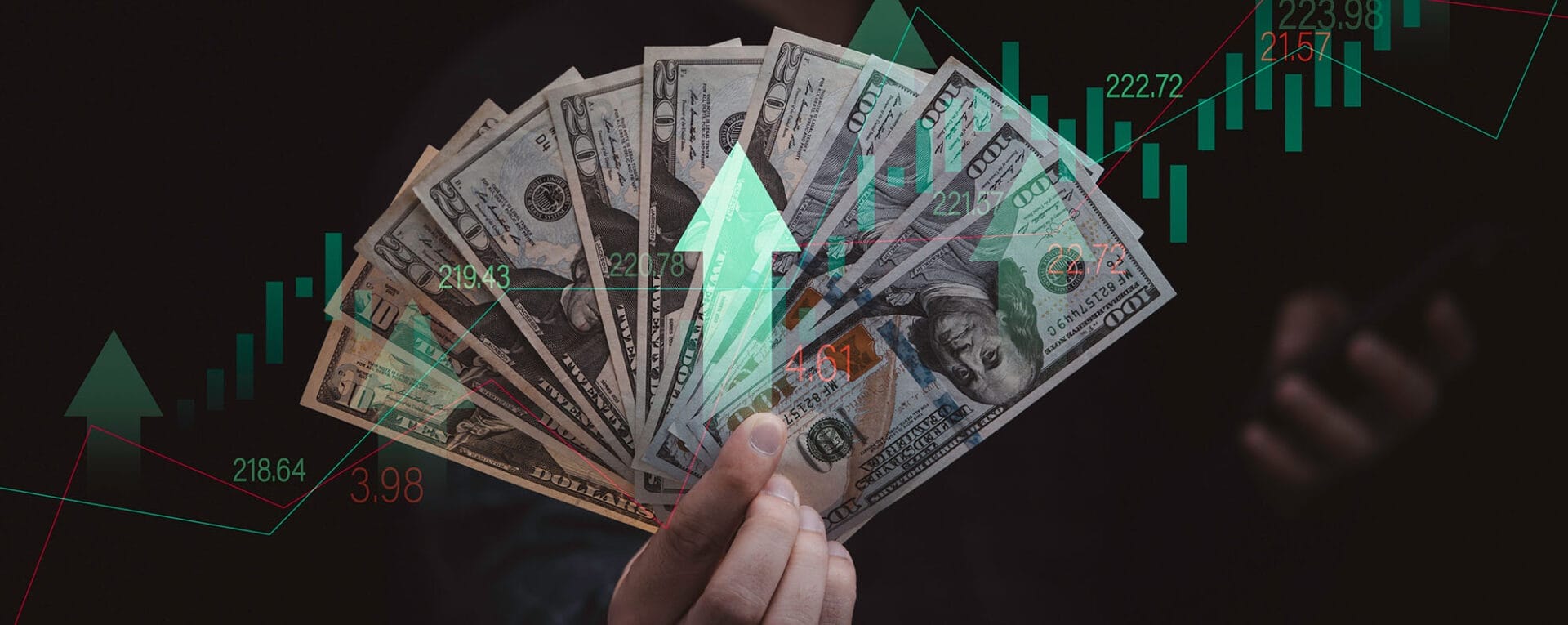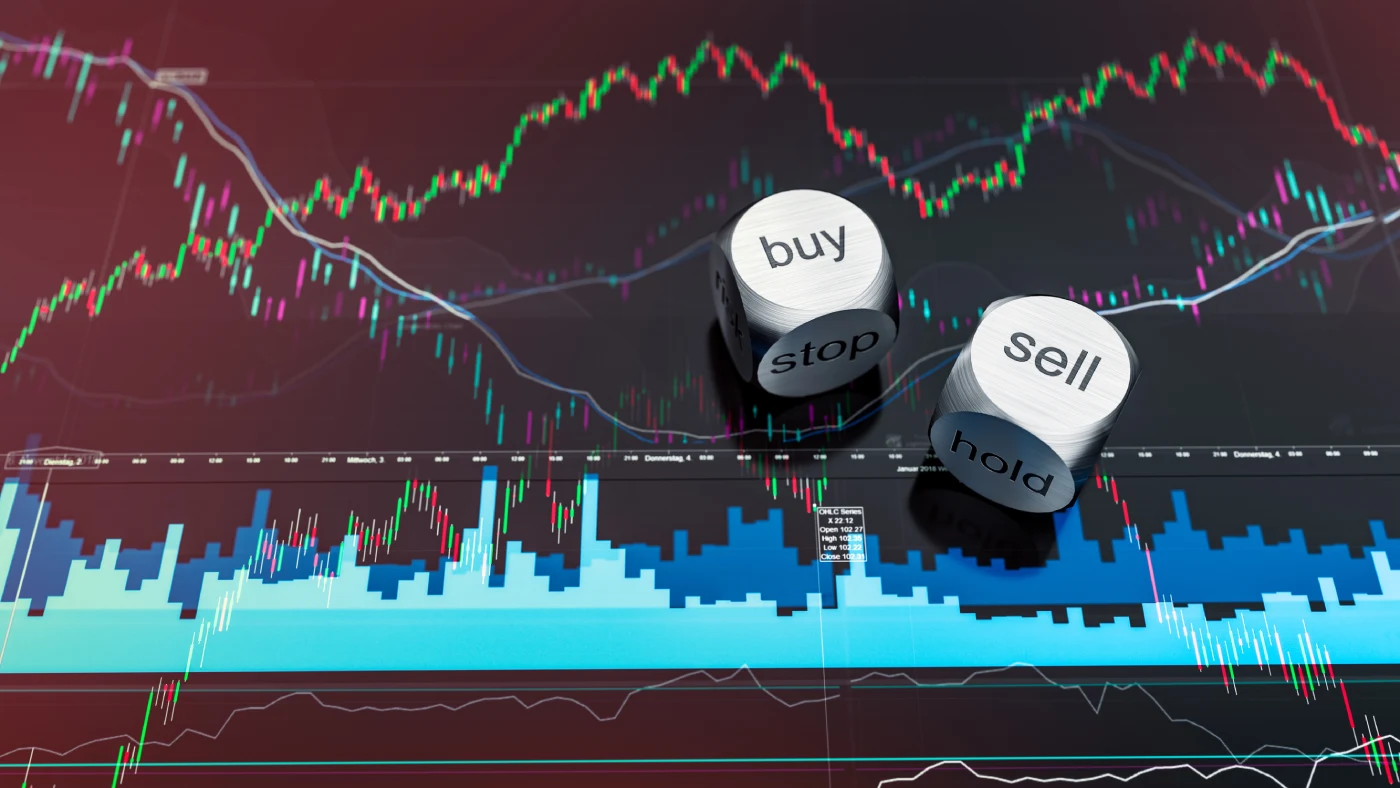
Options vs Futures: What’s the Difference?
MAVEN TRADING OPERATES A SIMULATED TRADING ENVIRONMENT THAT REPLICATES CERTAIN REGULATED FINANCIAL MARKETS BUT DOES NOT INVOLVE TRANSACTIONS IN OR SERVICES CONCERNING REGULATED FINANCIAL INSTRUMENTS.
MAVEN TRADING DOES NOT SUPPLY ANY REGULATED FINANCIAL SERVICES. MAVEN TRADING IS NOT REGULATED OR AUTHORIZED BY ANY FINANCIAL SERVICES REGULATOR IN ANY JURISDICTION.
Futures trading, options trading…you’ve maybe heard of these terms before. But do you know what they mean? Options and futures are often confused, but in reality, they are very different.
To dispel the confusion, here’s a breakdown of the difference between futures and options trading.
What Are Options?
Options are a type of financial contract, or financial instrument. They give one party the right to buy or sell an asset at a certain price, on a specified date.
There are two types of options: puts and calls.
- Puts: A “put” means you have the right to buy an asset on the specified date for a set price.
- Calls: A “call” means you can sell an asset on the agreed date for a set price.
Notice we’re talking about the right to buy or sell an asset here – not the obligation to do so. If you purchase an option, you’re buying the right to take action. But you’re not obliged to buy or sell (hence the name “options”).
- You pay a small premium for the contract.
- To calculate the premium, look at factors such as when the contract expires. You might also consider the asset’s current market value.
- The price doesn’t change – it’s specified in the contract itself.
- The underlying asset can be any other instrument, including another contract!
Pros and Cons of Options
Before we look at futures, here’s a summary of the pros and cons of options trading.
The Pros
- The initial outlay is usually less than simply buying the stock outright.
- If you choose not to buy, losses are limited to the premium.
- With the right strategy, options can deliver high returns.
The Cons
- Options contracts can be tricky to price. You need to consider various factors.
- The concept of options trading can be difficult to learn.
- Sellers can face significant losses.
What Are Futures?
Futures are also a type of financial instrument or contract. However, unlike options trading, there’s no “option” to buy the asset. You’re obliged to buy the asset in the future on a certain future date.
- The buyer must purchase the asset on the agreed date regardless of its market price on that day.
- The seller agrees to sell the asset on this date – again, there’s no option. It’s obligatory.
- The price is agreed in advance. This could be higher or lower than the market price on the date you buy or sell.
- Futures assets can be other contracts, but they are often commodities or materials.
Pros and Cons of Futures
We can summarize the pros and cons of futures as follows.
The Pros
- Simple pricing based on, for example, current market price.
- You can use futures to hedge against losses and manage risk.
- Futures can help diversify your portfolio.
The Cons
- Prices could drop by the contract expiry date, meaning you risk significant losses.
- It takes a while to learn the art of trading futures well.
- Using futures as leverage, or hedging, can work against you. After all, market conditions are highly volatile.
Futures vs Options: Key Differences
Clearly, options and futures are similar in many ways. Here’s where they are similar:
- Options and futures are both types of financial instruments.
- They let investors hedge against price movements or market volatility.
- There’s a contract involved, whether you choose options or futures.
- Although anyone can trade options or futures, it does take time to learn the strategies involved. This is where no-risk demo accounts can be helpful for day traders.
However, there are four crucial differences we’ve identified. They relate to pricing, assets, rights and obligations, and risk. Let’s summarize each one in turn.
Pricing
- Options prices can fall, but in real terms, can never fall below $0. If you don’t want to buy or sell you just let the contract expire and accept there’s no profit.
- Futures prices can fall below $0. Market prices can plummet between agreeing on the contract and buying or selling the asset.
Assets
- Options assets can be any other financial instrument or security. This includes stocks, contracts, or shares.
- Futures assets can also be any type of financial security. However, they’re often commodities or physical property.
Rights and Obligations
- Options give you the right to buy or sell an asset. You are not required to do so.
- Futures require you to buy or sell the asset. You have rights and obligations.

Risk
- Options are less risky because there’s no obligation to buy or sell. You could still lose money, but it’s less risky overall.
- Futures can bring higher returns. However, there’s more risk because you’re obliged to complete the contract.
Trading Futures vs Options
We’ve covered futures contracts and options contracts. But is options or futures trading right for you? There’s no simple answer to this question. It all depends on various factors, such as your:
- Level of experience
- Trading strategy
- Appetite for risk
On the whole, though, futures are typically riskier than options. This is because you’re obliged to complete the contract, even if it means accepting losses.
What’s more, options can be easier to trade intra-day. Meaning, you close your position at the of the night. This makes them more desirable for day traders. Futures may work best for longer-term investments.
Weigh up the pros and cons of options or futures trading before you get started.
Your Day Trading Journey Starts Here | Maven Trading
Are you ready to take your day trading skills to a new level? Then Maven Trading wants to hear from you! We’re always seeking talented traders hoping to level up and make profits. If you pass our challenges, we’ll provide a funded account with simulated capital. You can trade, learn, and grow.
Opt for an instant funding account to start trading right away. Or choose from our challenge accounts to apply for simulated capital. Make your choice today!
FYI: At Maven, we don’t offer futures or options trading, however, this is still a good article for people to get into the “trading world” and potentially find Maven along that way.
PLEASE SEE THE MAVEN TRADING WEBSITE AND OUR CUSTOMER TERMS AND CONDITIONS FOR MORE DETAIL.
Related thoughts and opinions
Stay informed with our informative blog posts.




